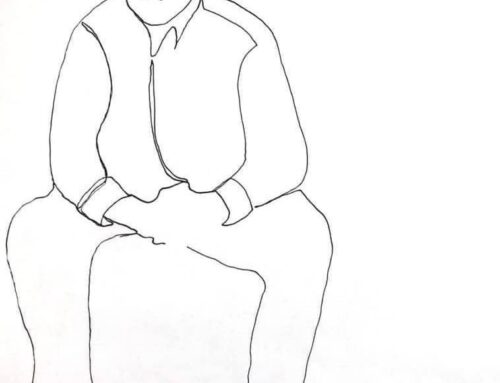Our guest post today is written by Janet Coburn. Janet is a freelance writer/editor with bipolar disorder, type 2. She is the author of Bipolar Me and Bipolar Us, available on Amazon, Barnes & Noble, iTunes, and through other outlets. She writes about mental health issues such as talk therapy, medication, books, bullying, social aspects, and public policy, but mostly her own experiences with bipolar 2. As she always says, “I’m not an expert and YMMV – Your Mileage May Vary.”
I can’t say that the pandemic has had all that much effect on my life. After all, I have bipolar disorder and anxiety. It’s not like I ever left the house much anyway. This has given me the perfect opportunity to “cocoon” without stigma. Perhaps the major change is that I no longer feel comfortable going out to eat, which was one of my husband’s major method of luring me out of the house.
I don’t mind wearing a mask when I go out. In a metaphorical sense, since I am considered high-functioning, I am wearing a mask whenever I do go out, presenting that I am well, when in reality, despite all my therapy and medications, I am still afflicted with mental illness.
You’d think that with bipolar disorder, type 2, which leans heavily towards depression, I would be brooding about the pandemic. Instead, I am largely ignoring it, other than promoting the wearing of masks and social distancing on my social media feeds. To this extent, I am socially aware, and an adherent of medical expertise. I may not have medical training, but I am friends with many people who do – plus I am somewhat of a science nerd.
Th main fear I have regarding the pandemic is my husband’s job. He works in a mega-store, though not in the grocery section. And he works third shift, when the store is closed, so he has little contact with the general populace. Also, his employers require all employees to wear a mask, and even provides a fresh one every shift. They are serious about this, sending home anyone who forgets to mask.
I must admit that my husband does not follow the early precautions recommended of washing his clothes immediately after coming home, or disinfecting the bags of groceries he brings home. He does keep hand sanitizer ready to hand, as it were, and uses it every time he pumps gas, for example.
The thing that does worry me about his job is that several people there have been identified with COVID, but the company refuses to tell any of the other employees who. This may be laudable from a privacy standpoint, but it leaves the other employees ignorant of whether they have been in contact with anyone affected. (Our state does not yet do contact tracing.)
All things considered, the tactic I most use to cope with the pandemic is my strategy of postponing. As I said once in my “But I Digress” blog, I believe that many worries can be postponed until they are no longer an issue. That fight with a spouse can be postponed until the ostensible cause of it disappears or is, at least, no longer an issue. I said, “The reason that I say procrastination can be good is that, if you wait long enough, whatever it is you’re putting off may just go away.” I was referring to disagreements with my husband, but it can be applied to the pandemic as well.
Admittedly, I don’t think the pandemic will go away anytime soon. In fact, I believe it will get worse before it gets better, even with the vaccine. Still, until it affects us directly – with one of our friends or family members catching it or it invading our house, I choose to defer adding it to my list of already-existing anxieties.
I don’t want to imply that I feel immune to or frivolous about COVID-19. It just doesn’t impinge on the symptoms of depression and anxiety I already have. I do wish that we could go out to lunch, though.







